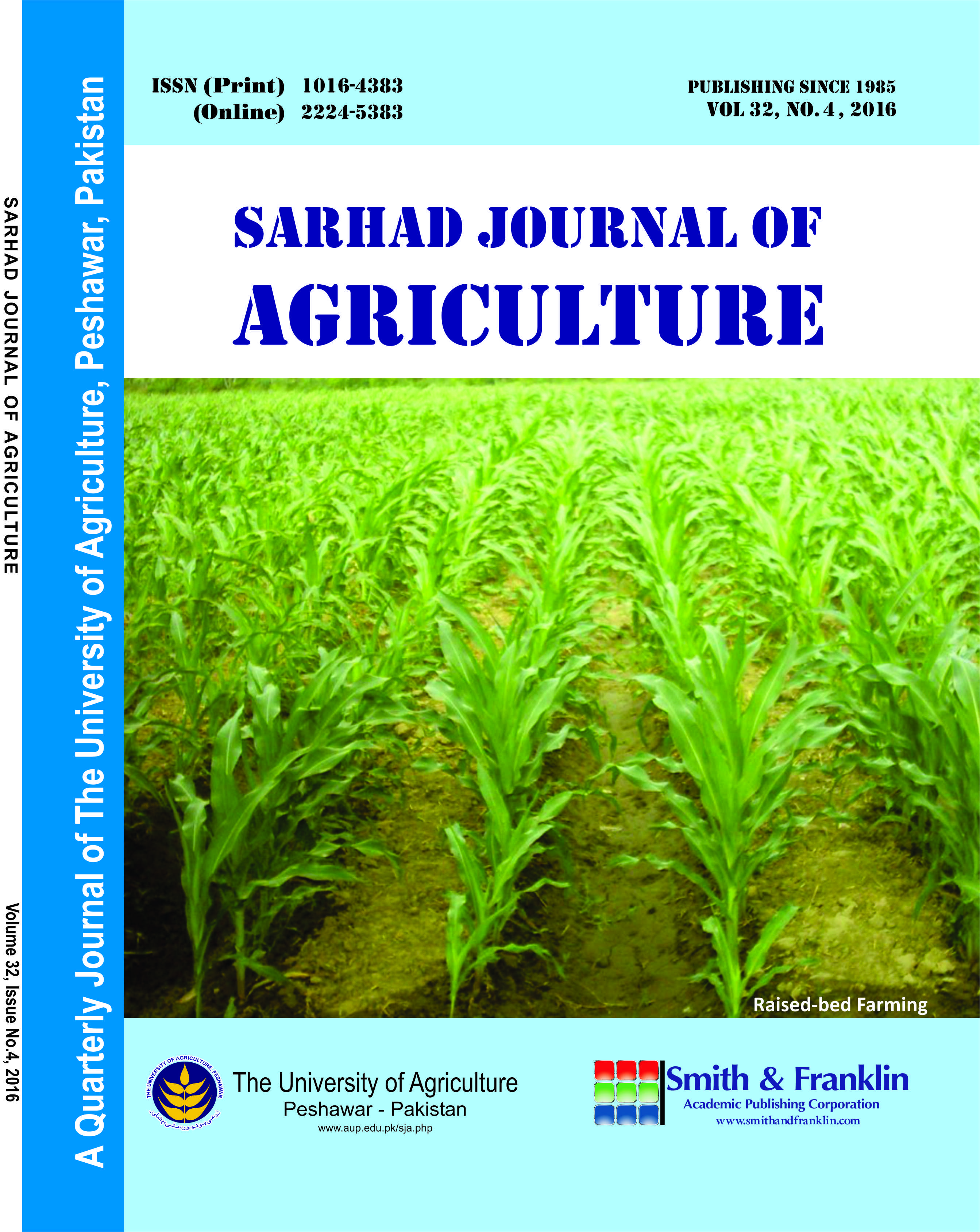Efficacy of Herbicides for Control of Duckweed (Lemna minor L.)
Efficacy of Herbicides for Control of Duckweed (Lemna minor L.)
Bakhtiar Gul*, Saleetha Rabial and Haroon Khan
ABSTRACT
An experiment was conducted in summer, 2016 at the Department of Weed Science, The University of Agriculture Peshawar to investigate the effect of herbicides on the management, growth and reproduction of duckweed (Lemna minor). The experiment was laid out in Completely Randomized Design (CRD) with three replecations and various herbicidal treatments. Duckweed was collected from fresh water bodies and transferred to the experimental units (pots). Data were recordrd on fresh biomass, budding (%), duckweed mortality (%), plant growth, root length, frond diameter, growth of microscopic algae and macrophytes associated with duckweed, and water surface coverage (%). Results revealed that herbicides had a significant effect on duckweed fresh biomass, budding % and water surface coverage. Minimum fresh biomass (2.98 g pot-1), budding (24 %) and water surface coverage (14.67 %) were recorded for glyphosate as compared to weedy check (4.45 g pot-1, 58.7 % and 22.67 %, respectively). Moreover, highest plant mortality (24.33 %) after four weeks was noted in glyphosate. Glyphosate effectively controlled the duckweed, followed by MCPA as compared to bromaxonil, isoproturon and paraquat. Therefore, glyphosate and MCPA proved suitable, economical and less laborious for the management of duckweed for large scale infestation.
To share on other social networks, click on any share button. What are these?







